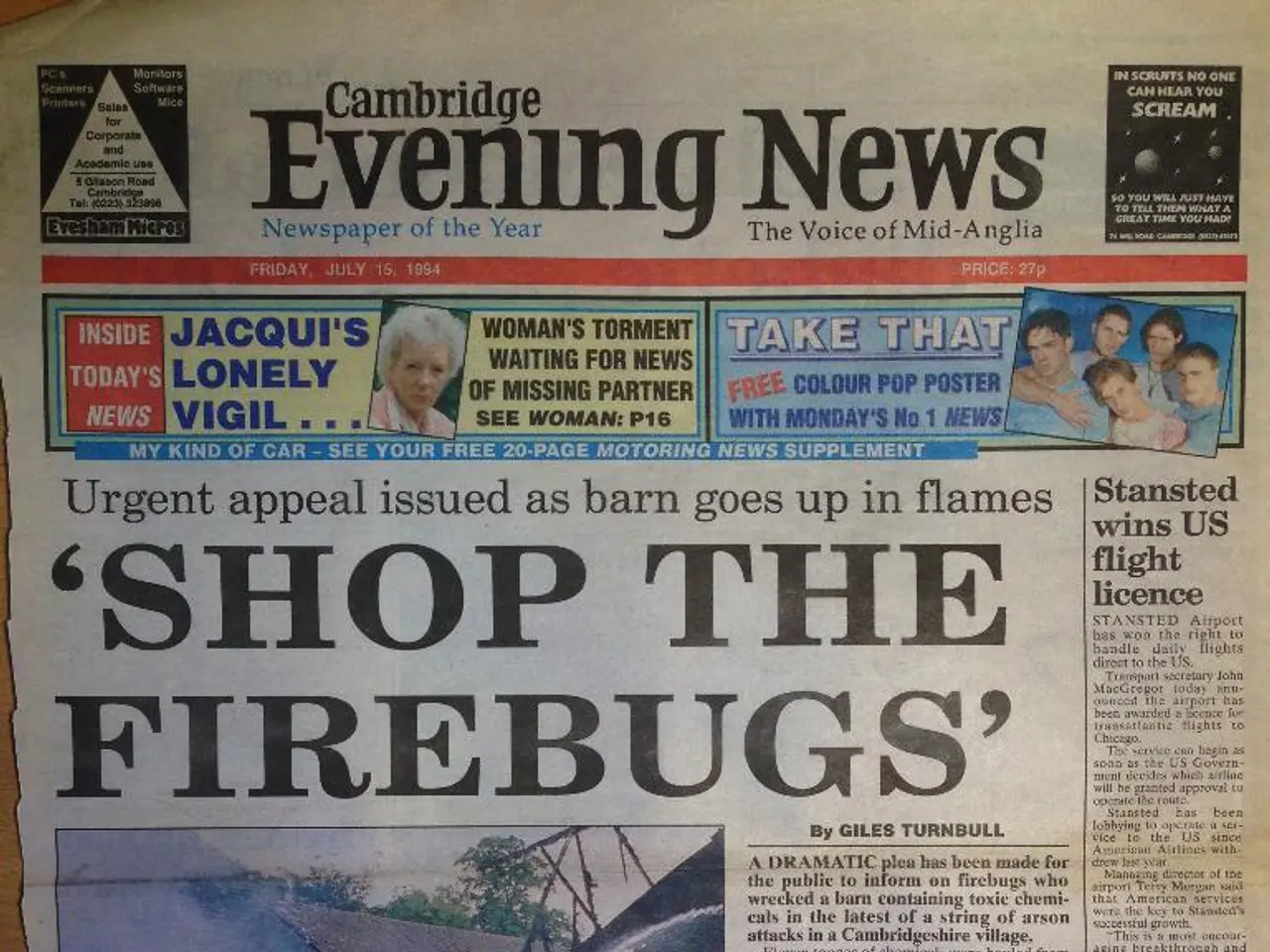Expressing in Unison: A United Front
The UK's public service broadcasters (PSBs) have been facing a significant challenge in recent years: a decline in high-quality, diverse children's programming. This trend, according to a discussion paper published by Dr Cythia Carter and Professor Jeanette Steemers, is primarily driven by budget cuts at PSBs, competition from digital platforms like YouTube, and structural challenges in the UK TV industry.
Budget Cuts and Commissioning Drops
PSBs have been reducing their budgets for children’s programming, leading to fewer commissions, smaller development budgets, and limited funds for new, original content. This has affected not only the quantity but also the quality and diversity of programming. Indie producers face difficulties getting projects greenlit, often with insufficient budgets for new material without established intellectual property (IP), making it financially risky and unsustainable to invest in diverse children’s shows.
Audience Shift to Digital Platforms
A large proportion of children and young people now prefer YouTube and other online streaming platforms over traditional broadcast TV. For example, 88% of 3-17-year-olds used YouTube in the last year, making it challenging for PSBs to reach this audience with traditional linear TV content. YouTube has become a primary destination for children’s video content, impacting the relevance and reach of PSB children’s programming.
Industry Employment and Sustainability Issues
The UK children’s TV production sector is experiencing a “perfect storm” with many workers out of work or facing precarious employment conditions due to the reduced commissioning by PSBs. This financial instability leads to fewer resources to develop and commission diverse, high-quality children’s content. Freelance workers and production companies report liquidation and layoffs, further constraining production capacity and innovation.
Changing Media Consumption Habits
Younger viewers increasingly reject scheduled TV in favor of on-demand online content, forcing PSBs to reconsider how and where they deliver children’s programming. Even with attempts to expand PSB presence on platforms like YouTube, the scale of audience fragmentation challenges their ability to maintain visibility and discoverability of public service content for children.
The decline in children’s programming by UK PSBs is a cause for concern, as these services are vitally important to educate, entertain, and inform a generation of British children from diverse backgrounds, places, and cultures. The report argues for the continued support of PSBs to ensure the provision of high-quality content for children who may not be able to afford subscription services.
The UK's creative industries, including fashion, technology, and design, have a global reach, contributing significantly to the UK economy. However, this discussion paper focuses on the impact of Brexit and other factors on the UK creative industries, particularly the children's programming sector. The report outlines seven opportunities and challenges for policymakers, and six public purposes for children's PSBs, to secure the future of children's media.
The BBC, ITV, and Channel 4, as public service broadcasters, have a long history of creating and nurturing a range of children's programming, such as Blue Peter, Newsround, The Story of Tracy Beaker, and Grange Hill. However, in 2020, BBC's evening Newsround programme was axed after 48 years, and by 2025 CBBC will only be broadcast online, marking a reduction in high-quality, diverse content aimed at children.
The report also examines cooperatives as a creative industry business model, suggesting that this model could provide a more sustainable and equitable approach to the production of children's content. The UK's Fashion and Textiles industry contributed almost £20 billion to the UK economy in 2020, demonstrating the potential for the creative industries to contribute to the Levelling Up agenda.
In conclusion, the combination of reduced PSB funding, audience migration to digital platforms, and industry instability underpins the decline in high-quality and diverse children’s programming by UK PSBs in recent years. The report serves as a call to action for policymakers and industry stakeholders to address these challenges and secure the future of children's media in the UK.
Read also:
- Dispute on hunger crisis in Gaza intensifies amongst numerous Jewish-American citizens
- Lucrative Business Opportunities in Nigeria: Discover Profitable Enterprises Immediately
- Carpometacarpal joint osteoarthritis: Characteristics, origins, remedies
- Humanity's Lasting Legacy Could Potentially be Piles of Chicken Remains




